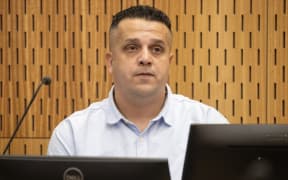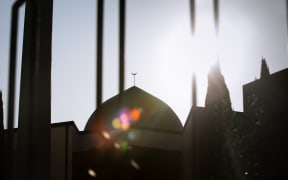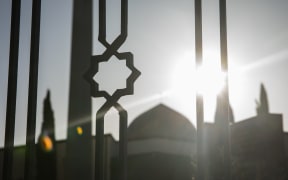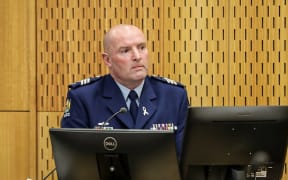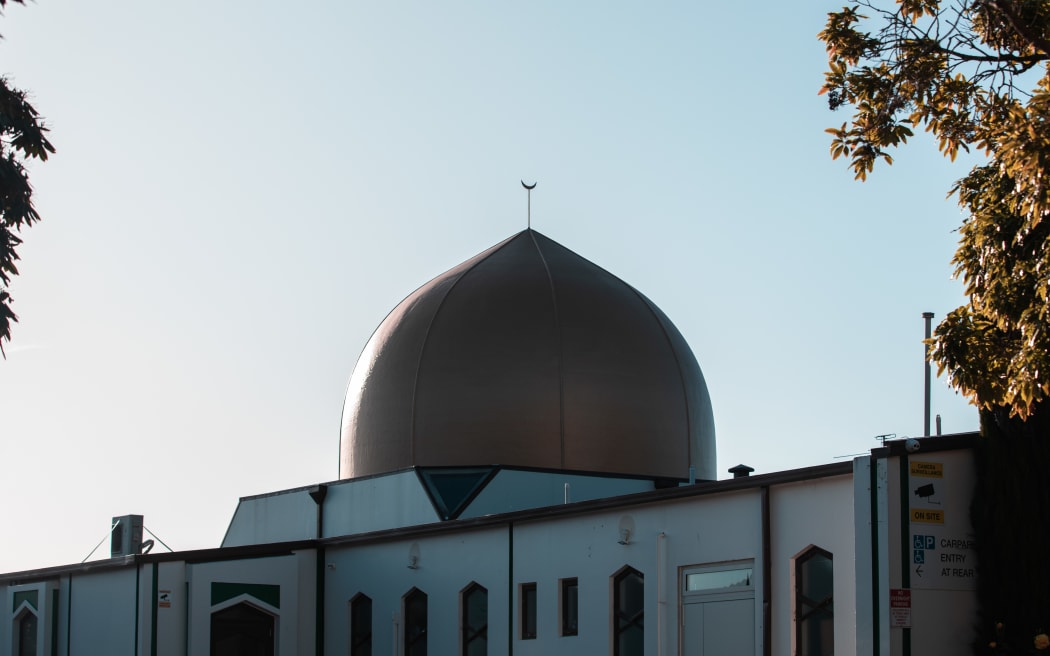
Christchurch's Al Noor Mosque. Photo: RNZ / Samuel Rillstone
Another Armed Offenders Squad member has detailed urgently and repeatedly calling for ambulances to Al Noor Mosque following the Christchurch terror attack.
The inquest into the 51 worshippers murdered during the March 2019 shootings at Al Noor Mosque and Linwood Islamic Centre entered its third week on Monday.
An AOS member, who cannot be named, told the court he first called ambulances while running to the Deans Avenue mosque shortly after the terrorist had left.
It was also revealed the terrorist sped past the AOS member, who was in his vehicle.
He was heading to the scene when the terrorist ran a red light in his haste to leave. A bus blocked the officer's view of the gunman and his vehicle.
The AOS member came across a male with a gunshot wound at the nearby Argyle on the Park Motel and requested an ambulance for him at 1.48pm.
He then continued towards the mosque, seeing a number of dead and injured people who needed urgent help.
While preparing to enter the mosque, the AOS member again requested ambulances over police radio.
The inquest had earlier heard from several other AOS members who said they had called for ambulances to come forward to the mosque to assist the severely injured well before paramedics were at the scene.
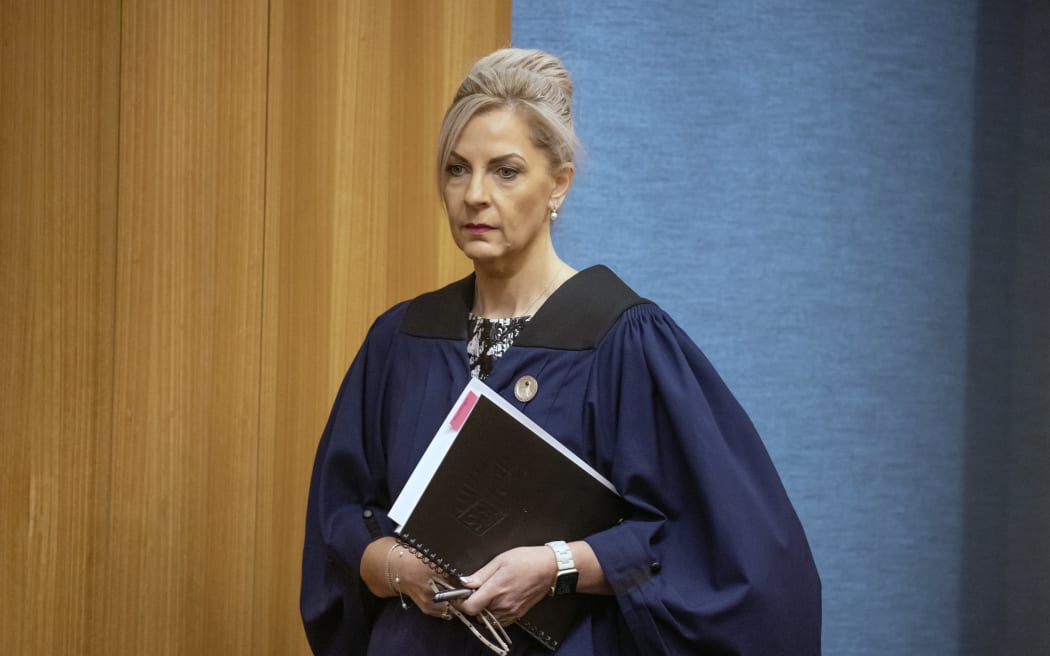
Deputy chief Coroner Brigitte Windley is overseeing the inquest. Photo: Iain McGregor
The officer described the scene inside the main prayer room as "chaotic". It was "sensory overload", with people yelling for help and a torch flashing nearby.
"It was an off the charts event in terms of magnitude," he told the court.
Paramedics were clearly needed as the number of injured was "beyond the scope and capability of what (medical equipment) we had", he said.
He ran out onto Deans Avenue several times to see where ambulances were and why they were not coming as requested.
He saw ambulances further up the road and said the process was "extremely frustrating", given the time it was taking for the request to go through police communications and on to St John.
Members of the public were questioning why ambulances were not coming, and he instructed them to put injured people into civilian cars and get them to hospital.
He then again called for ambulances over police radio.
A paramedic arrived about 2.05pm, but was waiting for further resources, the officer said.
The AOS member outlined the severity of the situation and the need for ambulances at the mosque to the paramedic.
"I would like to think it was made clear to him what we needed."
The first ambulances arrived around 2.10pm, he said.
The inquest earlier heard paramedics entered the mosque around 2.15pm, under the protection of AOS, despite it being against St John policy to go in as the site was still unsafe.
The AOS member said paramedics had planned to take injured victims to hospital one-by-one, but he had wanted them to load as many people into the ambulance as they possibly could.
In hindsight however, he said he understood this could not be done - but he had wanted to convey to paramedics just how many injured people needed help.
The inquest will examine the following 10 issues over six weeks:
- Events of 15 March 2019 from the commencement of the attack until the terrorist's formal interview by police
- response times and entry processes of police and ambulance officers at each mosque
- Triage and medical response at each mosque
- The steps that were taken to apprehend the offender
- The role of, and processes undertaken by, Christchurch Hospital in responding to the attack
- Coordination between emergency services and first responders
- Whether the terrorist had any direct assistance from any other person on 15 March 2019
- If raised by immediate family, and to the extent it can be ascertained, the final movements and time of death for each of the deceased
- The cause of death for each of the victims and whether any deaths could have been avoided
- Whether Al Noor Mosque emergency exit door in the southeast corner of the main prayer room failed to function during the attack and, if so, why?
The inquest continues.
